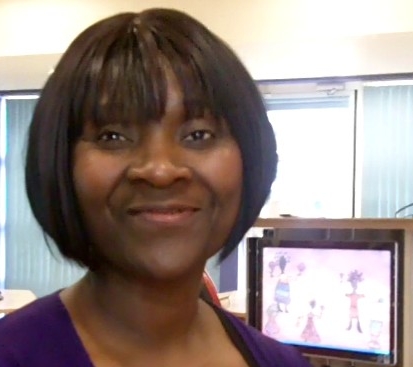 A task a day for 31 daysToday's suggestion is that you invite a teacher from another school to visit your school, and to try to arrange a visit to another school. Doug Woods suggested this back on Day 4 ('Get out and about') when he said:
A task a day for 31 daysToday's suggestion is that you invite a teacher from another school to visit your school, and to try to arrange a visit to another school. Doug Woods suggested this back on Day 4 ('Get out and about') when he said:
I'd suggest walking around other schools to get a view of how they approach things. And also invite other teachers from other schools to visit yours and ask for their impressions.
There is no right and wrong about any of this, but the reason that I have deferred this until now is that I think you get more out of visits if you have done a lot of groundwork first, as I explain below.
Purpose of the visits
There are several good reasons to arrange such visits, for example:
- To help you see your ed tech provision through the eyes of a disinterested third party (note that I said DISinterested, not UNinterested). People tend to see things they want to see, and to get used to the things that perhaps are not quite right. Someone from outside, with no axe to grind, can ask the awkward questions like, "But why do you do it like THAT?", and to share their own experience with you.
- Visiting other schools can give you ideas. When I was involved in ICT inspections, on one or two occasions I suggested that the Head of e-Learning visit a few schools to see what was going on 'out there'. Without that injection of fresh ideas, it is really easy to become a bit stale.
- If you're thinking of investing in a particular type of network, or software, a visit by and to someone who has already done so can be invaluable in helping you avoid some of their mistakes.
- On a longer-term basis, it is often a good idea to forge 'vertical' links, ie with the schools that your pupils are coming from or going on to.
Who should you visit or invite?
If you're in the UK, it's easy to find schools worth a visit in your area. To find out which schools have been accredited with the ICT Mark, or even those which have committed themselves to going down that road, the Next Generation website is very good.
You can also go to the Becta ICT Mark site, but in my opinion that is not as good because it has only ICT Mark schools, not ones which have committed themselves to the Next Generation Charter (as it's called).
For a less 'official' list of schools, go to the SSAT's ICT Register — but bear in mind that schools nominate themselves as being worthy of inclusion on the Register.
You could also ask your Local Authority advisor (if there is one) or your School Improvement Officer.
You might also trawl through the Ofsted reports for schools in which ICT received a good mention, but as ICT is not always specifically mentioned the reports of good schools in that respect may be a few years old now.
Companies can also recommend schools. For example, an interactive whiteboard company will be able to recommend exemplar schools, ie ones which have done great things with that product. In a sense, that narrows the focus somewhat, but in my experience, and from the reading I've done and conversations I've had, doing great things as a whole school in one particular area is usually indicative of a much deeper and broader level of engagement with change management processes and that sort of thing. In other words, it would be highly unlikely, I think, to find a school that was working wonders in its use of interactive whiteboards throughout the school, but which was pretty awful in every other use of educational technology.
Also, if you attend conferences or training days, get chatting to people and, if feasible, contact them subsequently to arrange reciprocal visits.
It doesn't have to be another school. It could be a college or even a company. It all depends on what you're mainly hoping to gain from the exercise.
Getting the most out of visits
If you have invited someone to visit your school, I would suggest asking them to do what you did on Day 4, ie walk about and gain a general impression of what's going on. Unless, of course, you'd like their opinion on a particular thing the school has been doing.
When visiting other schools I think you gain much more from it by doing even a small amount of research. What was their last inspection report like (if you're in the UK)? Are they on the ICT Register, or have they achieved the ICT Mark? What does their website tell you.
For me, part of the research is being done whilst you're attending to your own affairs, which is why I am suggesting visits now rather than on Day 4. I think it's important to have have done some deep thinking first, so that you can ask relevant questions or look for particular aspects at the time: nothing is more frustrating than wishing you'd asked to look at a particular thing when it's too late.
Your task for today
So your task for today is not to visit a school, obviously, as you can't do that in 15 minutes, but to think about what you'd like to get out of a visit to another school, or from someone else visiting your schol. Then have a think about whom to approach.
If you lead a team of ICT teachers, put this topic on the agenda for your next team meeting. Perhaps your colleagues can suggest schools to visit or teachers to invite, and why. If they are nervous about the idea of having visitors, try to explore why. Why is it that they are not 100% confident in what the school is doing in that regard, and what can be done about it?
You can see that even if the discussion results in a decision to not invite others in, that in itself can provide a rich source of data about what needs to be addressed and prioritised as far as educational technology in your school is concerned.







